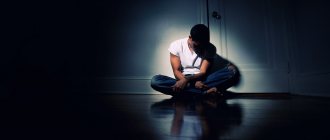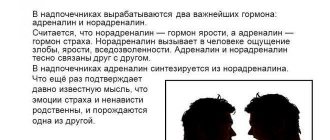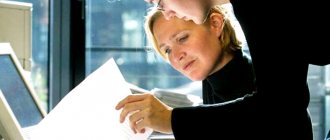Hello! Today we’ll talk about what fear of the unknown is, what the causes are, what consequences it can lead to and how to get rid of fear of the unknown.
A good friend of mine once shared his problem with me:
“I don't know what's going on. I wake up at 5 am every night in a row and can’t fall asleep. There are hundreds of thoughts in my head: what to do? how to fix everything? There is a desire to act, to eliminate problems, to influence the world... But what exactly to do is not clear, especially at such an early age. There is no clarity.
It's just panic. I'm exhausted, devastated. The whole next day passes in anxiety. I withdraw into myself, become isolated, and cannot break out of this circle of questions: what to do, what to do? I can't get any answers. And I understand that I am losing touch with reality. This is a dead end. Hopelessness.”
My friend definitely experiences fear, subconscious, vague. Anxiety completely consumes him, and it is impossible to understand what exactly he is afraid of. This is the fear of the unknown, psychology calls it agnosophobia.
We are often afraid of change. Whether these changes concern the whole state or just you personally, it doesn’t matter. At every stage of life, during the most important periods, anxiety arises. What happens if I fail? What if…?
There are a great many situations that carry the factor of uncertainty:
- interview for a new job,
- exams,
- wedding,
- major real estate transactions,
- pregnancy,
- long trip...
The unknown breeds fear. And something needs to be done about this. Fear causes discomfort and reduces our quality of life. What kind of happiness and joy can you talk about if you are scared? But the fear of the unknown, this phobia, has psychological reasons and you need to work with them.
What is written here:
The fear of the unknown is special. In fact, you know what you are afraid of, but it is erased in your description or consciousness. This is where the word “unknown” comes into play.
This is how the first level of protection against stress works.
Any fear is a natural and necessary reaction. Fear is triggered by an external trigger that reminds our subconscious of a negative experience. It may be acquired or hereditary. However, the root of all fear is stress. The stronger the emotions during stress, the stronger the fear that this stress will happen again.
When the command “Danger!” sounds, the brain releases as many different hormones into the blood as there are multi-colored candies in a pack of m&m’s. All of them are needed so that you are ready to react: run or defend.
Hormones trigger physical manifestations of fear:
- sweaty palms,
- dizziness,
- lack of appetite (what food, when there is danger),
- irritation (if you decide to “hit”).
The most unpleasant thing about fear is that it grows and intensifies if you do nothing about it. Mild anxiety can develop into conscious fear, and then into phobia, panic attacks and lead to depression.
If you don’t learn to stop your fear, your brain will continue to receive the “danger!” signal, triggering defense mechanisms again and again. It’s as if a stuck button on the TV remote alarms your brain with the loud sound of Channel 1 news at 5 am. Where to run? What's happened? How much health is enough for you to constantly jump up on alarm in full combat readiness?
The experience of our School of Conscious Development suggests that many diseases are based on fears. Stanislav Ivanovich Losev writes the following about the fear of the unknown:
- subconscious fear of the future can cause radiculitis;
- fear blocks forward movement - problems with legs;
- from constant stress - insomnia,
- infertility, miscarriages;
- seasickness and much more.
An unpleasant set, would you agree?
“All diseases come from nerves” is a very accurate popular expression. The human body is designed very wisely. Any failure has its own reason, including psychological. Stress and negative experiences may lie deep in the subconscious, but greatly affect your daily life.
The good news is that there are tools that allow you to work with stress and fears, with the causes of possible illnesses.
To be healthy and happy, do not allow fears to take hold of you. Prevention of diseases is much more pleasant, cheaper and more effective than any treatment. I will talk about this below.
The answer is hidden in our brain
Fear of the unknown is not stupidity, not fiction, and not a whim. People suffering from increased anxiety and fear of the unknown (in English there is a term Intolerance of uncertainty) underwent MRI, EEG and EMG - electromyography, a study of the electrical activity of muscles. After analyzing the research results, scientists came to the conclusion that both the body and the brain of these people behave as if they were in real danger.
In addition, according to MRI data, in patients with “intolerance of uncertainty,” certain brain structures—the insula and the amygdala—are increased. These same sections are also enlarged in those who suffer from depression, obsessive-compulsive and generalized anxiety disorders.
In addition, “intolerance of the unknown” can be a symptom or, conversely, a kind of harbinger of these conditions.
It is not yet very clear what comes first, but perhaps the fear of the unknown, like mental disorders, is determined by the structure of the brain.
Why does it happen?
What are the reasons for the emergence of a pathological fear of the unknown in each individual person suffering from agnosophobia? No one can give a clear, unambiguous, scientifically based answer.
Psychologists rightly point to the time of childhood, where, as a result of trauma, the preconditions for illness can be created in a person.
Geneticists claim that anxiety and suspiciousness can be embedded in the genome, and, therefore, manifest themselves in certain people beyond their desire. That is, a certain percentage is prone to the disease initially.
https://pixabay.com/
Psychiatrists who work directly with a disease tend not to consider the cause of its occurrence, but to identify specific types of sick people and work with them. There are five behavioral models of an agnosophobe, each with its own characteristics:
- Planner. He has a plan for everything. A step to the side is an attempt to escape. Jumping in place is an attempt to fly away.
- Opportunist. The wise minnow of Saltykov-Shchedrin, who will live his whole life so that not a single blade of grass moves.
- Defeatist. A person who lost before starting the battle, because he was sure in advance that the outcome would be unfavorable.
- Owner . Surrounds himself with attributes of success (houses and yachts, luxury cars and expensive things, jewelry and branded clothing). He believes that they are where stability lies.
- Maximalist. His motto: “If you can’t do everything perfectly, then you shouldn’t do anything at all.” No business - no mistakes. Logics.
You can talk about the cause of the disease for a long time, citing new and new studies. Fortunately, at least three large international universities and several national ones are working on this issue. But it is much more important to know how to get rid of the fear of the unknown.
We inherit fear
We learn the habit of giving in to the unknown in the family, like many other behavioral patterns. With their reactions, words, and emotions, parents form a picture of their children’s world, model their behavior and attitude to life. Research shows Parental Modeling, Reinforcement, and Information Transfer: Risk Factors in the Development of Child Anxiety? that children with anxious and overprotective parents are also susceptible to anxiety. And it is closely related to the fear of the unknown, including at the level of neurophysiology - perhaps the same parts of the brain are responsible for them. Intolerance of uncertainty: Neural and psychophysiological correlates of the perception of uncertainty as threatening.
Here is a fairly common situation: parents, despite their low salary, have worked in one place all their lives, fearing more than anything else in the world of losing it. Children of such parents learn that you need to hold on to your job and losing it is a disaster. And then they carry within themselves the same constant anxiety, the same fear of change and the unknown, the fear of trying themselves in a new business.
Thinking errors are to blame for everything
Judgment under Uncertainty: Heuristics and Biases was first discussed about cognitive biases back in the 1970s by Amos Tversky and Daniel Kahneman. These are deviations in perception, thinking and behavior that are associated with emotions, stereotypes and prejudices, with incorrect analysis of information and the structure of the human brain. The most dangerous thing about cognitive distortions is that they are not easy to track - they mimic so well the normal thought process. Fear of the unknown is closely related to several similar “bugs”.
Ambiguity effect
We would rather have a modest but known result than risk getting more without any guarantees. And the ambiguity effect is to blame for this.
In one experiment, Risk, Ambiguity, and the Savage Axioms, two buckets of different colored marbles were placed in front of participants. The first one had 50 red and 50 black balls, but for the second one the color relationship remained a mystery. You had to choose a bucket and bet on the color.
If a person guessed correctly, he received $100, and if he was wrong, he received nothing and lost nothing. Participants were more likely to choose the first bucket, where the probability of winning and the risk of losing were known. Although the probability of winning when choosing the second bucket could well be higher - for example, if all the balls in it were the same color.
This effect works not only in experiments, but also in real life.
We would rather choose a job with a small but stable salary than one that pays only a percentage of sales or profits. Although in the second case the income may be significantly higher. And we are more likely to go home along a long but familiar road than to risk trying a new path - perhaps a shorter and more convenient one. By the way, this situation, when an unfamiliar road seems more difficult and longer than a familiar one, has a separate name An Empirical Study of Travel Time Variability and Travel Choice Behavior - the well-traveled road effect.
Deviation towards the status quo
This cognitive trap is somewhat similar to the ambiguity effect. A person wants everything to remain as it is, that is, to maintain the status quo (status quo - initial state). Even if he is not very happy with the current state of things.
During the experiment, Status quo bias in decision making, participants were asked to choose health insurance, investment instruments, or—the most telling example—a candidate for a political position. It turned out that people would be more willing to re-elect someone who already holds this position than to risk giving a new candidate a chance.
Lack of information is also to blame here, as in the case of the ambiguity effect. But he's not the only one.
There is also a fear of change, a fear of taking responsibility and “rejection of Prospect theory: an analysis of decision under risk of losses”: it is easier for us to come to terms with the fact that we will not receive a thousand rubles than with the fact that we will lose this money. That same bird in the hand instead of a pie in the sky.
The endowment effect and appeal to tradition
Among the cognitive distortions that make us fear the unknown is the “endowment effect.” Because of it, we value what we already have more than what we could get. And “appeal to the traditions of Argumentation and debating” is the case when it seems to us that familiar and well-known approaches are better than new ones.
For example, we think that during a cold (and especially if a child is sick) we need to wrap ourselves in three blankets, close all the windows, eat a lot and breathe over a saucepan of hot water - because that’s what our mothers, grandmothers and great-grandmothers did. Meanwhile, doctors give completely different recommendations Clinical recommendations Acute respiratory viral infection (ARVI) in children.
But you can adapt to fear
To begin with, you should admit that you are afraid and that it is not your fault. Fear is not weakness or passivity, but an integral part of our personality. According to some hypotheses, Fear of the unknown: One fear to rule them all? , fear of the unknown is a “basic fear” that underlies all other fears, as well as anxiety, neurasthenia and other similar conditions.
So it will not be possible to drive him away even with the most decisive willpower. But you can adapt to it.
For example, make the unknown become known. In other words, collect information. Let's say you want to write a book, but things don't go further than dreams. This is very scary! You probably have a lot of questions. How to develop characters, how to make a plan, how to stay motivated, where to look for support? What happens when you finish your manuscript: do you have a chance of getting accepted into publishing, how much will they pay you, and what should you do to make the book sell well?
Try to find answers to these questions - read books and articles about writing, sign up for literary courses, talk to more experienced authors. The chosen task will no longer seem like a huge, impregnable mountain peak shrouded in fog. And the fear will recede.
This scheme - collecting as much information as possible and drawing up a detailed step-by-step plan - works not only in creativity, but also in any other situation that frightens us.
Do you want to switch from the office to freelancing, but are you afraid of being left without money? You can analyze offers on exchanges, talk with more experienced freelancers and educate yourself.
Are moving to another city scary? What if you communicate in city groups, find out all the pros and cons of living in a new place and find a job, a clinic and a gym in advance? And at the same time, new acquaintances: suddenly someone, like you, dreams of moving, but cannot decide.
So, with the help of knowledge, tools and algorithms, you can eliminate thinking errors - and become a little bolder.
How to get rid of the fear of the unknown
https://pixabay.com/
Before presenting specific techniques that allow you to independently overcome the manifestations of agnosophobia, it should be said that agnosophobia is a disease. And at a certain stage, doctors should deal with it.
Therefore, before starting the proposed exercises, it is better to consult a qualified specialist in order to overcome the phobia once and for all.
What can be done? There are quite a few methods of combating agnosophobia, some of them are of religious origin. For example, meditation practices adopted in Buddhism and Taoism. There are also purely secular techniques developed by professional psychologists.
Three exercises developed by the French psychotherapist Christophe Andre are considered one of the most effective and well-proven exercises. Here they are.
The reporter
During the exercise, you will try on the role of a journalist going on a business trip to write a short report about an event and take photographs. Just go to any unfamiliar place and start working “in your specialty.”
Let's say you come to the park and see ducks swimming in a pond. Their appearance was likely, but it was impossible to predict it with certainty. While you were reporting, the ducks flew away. Reality has changed in a way that is inconsistent with your wishes.
Over time, you will be able to get used to the fact that everything around you is changing in an unknown direction and at a minute unknown in advance, and this is normal.
Upside down
Spend a few hours in the evening to create a detailed, minute-by-minute schedule for the next day. And right in the morning, do everything exactly the opposite of what you planned!
You will see: because your plan was not implemented, the world did not collapse, the end of the world did not come.











